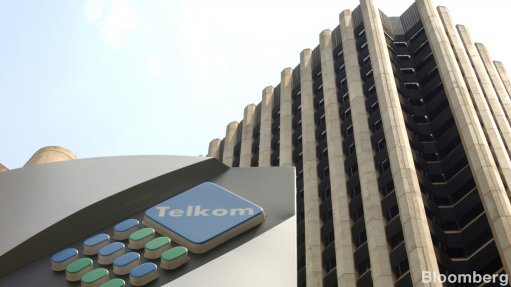
The settlement agreement between Telkom and the Competition Commission represented a “turning point” in how the telecoms group would engage with the commission going forward, Telkom's legal representative Paul Coetser said Wednesday.
"It will introduce heightened corporate governance, which will hopefully increase the group's competitiveness," he said at the Competition Tribunal hearing into the settlement that the commission reached with Telkom last month.
Telkom has admitted to uncompetitive behaviour and agreed to pay a fine of R200-million over three years.
The commission started an investigation following a series of complaints lodged against Telkom by Internet service providers (ISPs) between 2005 and 2007.
The commission found that Telkom had engaged in a so-called 'margin-squeeze' by charging first-tier ISPs or, in the case of Diginet access lines, their customers, excessive prices for high-bandwidth national electronic communications transmission line (HBTL) and International private leased circuit (IPLC) services.
Diginet access lines, HBTLs, IPLCs and IP Connect (the service provided by Telkom Wholesale) were set at levels that precluded cost-effective competition with Telkom Retail's Internet access and multiprotocol layer switching-based virtual private network (IP VPN) services.
The commission concluded that Telkom had engaged in anti-competitive conditional selling of IP VPN and Internet access services through bundling these products, with Diginet and asymmetric digital subscriber line (ADSL) access services that were priced markedly lower than the equivalent access services that end-users would buy when considering the purchase of IP VPN and Internet access from other operators.
Telkom admitted that, during the complaint period, first-tier ISP customers had no commercially viable alternative but to use its ADSL and Diginet services to gain access to the backbone networks.
The company also conceded that its pricing structures resulted in a margin squeeze on the first-tier ISP competitors and anti-competitive conditional selling of IP VPN and Internet access with Diginet and ADSL access services.
Telkom said it had ceased such conduct, or in some cases would cease such conduct within six calendar months of the confirmation date of the settlement agreement.
The settlement agreement also stated that Telkom would, among others, implement a functional separation of its wholesale and retail businesses subject to the provisions of the Code of Conduct. This would entail that Telkom Wholesale would treat other licensed operators and Telkom Retail in a nondiscriminatory manner when providing services and protect their confidential information.
Further, Telkom would adopt a transfer-pricing programme that would regulate transactions in the provision of network services between its wholesale and retail business divisions in accordance with the transfer-pricing programme.
"The transfer-pricing policy will be the remedy and ensure positive margins for Telkom's competitors," Genesis Analytics' James Hodge, who spoke on behalf of the commission, said at the hearings in Pretoria.
Price reductions would also be implemented, with Hodge indicating that 70% of this would be in Telkom's wholesale business and 30% in its retail business.
In response to a question by Competition Tribunal panelist and High Court attorney Yasmin Carrim on how Telkom would ensure that the cost reduction was carried through to consumers, Hodge said that the group would have to undertake cost-saving measures.
Although no indication could be provided as to when a ruling regarding the confirmation of the settlement agreement would be made, Tribunal chairperson Norman Manoim said the agreement would benefit all parties involved.